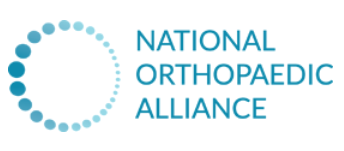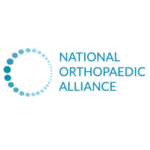
 Guest blog by
Guest blog by
Cormac Kelly, Consultant Upper Limb Surgeon at The Robert Jones and Agnes Hunt Orthopaedic Hospital NHS Foundation Trust
and
Peter Kay, National Orthopaedic Alliance (NOA) Lead Clinician and Consultant Orthopaedic Surgeon at Wrightington, Wigan and Leigh Teaching Hospitals NHS Foundation Trust
The COVID-19 crisis has changed the delivery of planned orthopaedic surgery drastically. As the pandemic continues to subside, the NHS, with various guidance from Public Health England, Medical and Surgical Colleges, the British Orthopaedic Association, and others, is working on a plan to get surgery back on track.
The information on the risks to patients and staff when operating during this crisis continues to emerge. In light of research from around the world indicating an increase in complication rates and mortality if patients contract COVID-19 around the time of surgical intervention, we are taking every precaution possible to develop processes to reduce the risk to our patients.  These have included the appropriate use of PPE (personal protective equipment), routine testing and using a “clean” area for surgery away from COVID-19 positive patients. Despite this, it is clear that the risk to patients is likely to be higher than normal. How much higher, we do not know. Thus, we are progressing slowly and carefully to restore the delivery of non-urgent orthopaedic surgery. Through organisations such as the National Orthopaedic Alliance (NOA), providers of orthopaedic care are working together to ensure the restoration of planned orthopaedic surgery is safe for both patients and staff.
These have included the appropriate use of PPE (personal protective equipment), routine testing and using a “clean” area for surgery away from COVID-19 positive patients. Despite this, it is clear that the risk to patients is likely to be higher than normal. How much higher, we do not know. Thus, we are progressing slowly and carefully to restore the delivery of non-urgent orthopaedic surgery. Through organisations such as the National Orthopaedic Alliance (NOA), providers of orthopaedic care are working together to ensure the restoration of planned orthopaedic surgery is safe for both patients and staff.
We are aware that some patients are at home – possibly in self-isolation suffering joint and soft tissue pain. Some are in high risk categories because of lung diseases, diabetes and other medical conditions, and may wish to wait several months and see how the pandemic recovery unfolds before moving forward with planned orthopaedic surgery. Others are living with progressive pain and may be reluctant to let us know that they need help for fear of ‘disturbing’ an already stretched NHS. We ask these patients to please not suffer in silence.
Recovery planning and restarting planned orthopaedic surgery is complicated as we have to consider joint issues along with other conditions such as cancer treatments and progressive sight loss. The volume of work we can do as we restart will be reduced because of factors including the availability of staff, PPE and resources such as theatres as these facilities are still being used to treat sick COVID-19 patients.
We all now know how to socially distance but this also needs to be considered when bringing elective orthopaedic patients back into hospital. Many patients have admitted to us that they are frightened of this new world and thoughts of visiting hospital. We understand that and have been investigating ways to help. Many patients are now able to take advantage of virtual clinics and are receiving telephone and video calls which we hope helps.
We continue to work to make sure patients have all the information, tricks and tips they need to help with pain as our therapists and nurses are constantly looking at new ways to deliver care. The ARMA website has some useful information on managing pain during the crisis. Although we strive, for patient’s protection, to avoid unnecessary face to face contact, this can be made possible after we discuss the risks and possible benefits. We are redesigning outpatients so that if patients do have to attend in person, it is as safe as possible.
Remember that we are still here for patients and we encourage them to let their orthopaedic care provider know if they are in trouble and are dealing with uncontrolled pain. Providers can work with them on a short-term solution while we work to restore elective and planned orthopaedic surgery post COVID-19.
——-
About Cormac Kelly
Cormac is a Consultant Upper Limb surgeon at The Robert Jones and Agnes Hunt Orthopaedic Hospital in Oswestry, Shropshire. He assists with the facilitation of the National Orthopaedic Alliance (NOA) COVID-19 webinar series.
About Peter Kay
Peter is a Consultant Orthopaedic Surgeon at Wrightington, Wigan and Leigh Teaching Hospitals NHS Foundation Trust and Honorary Clinical Professor of Orthopaedic Surgery at Manchester University. He is the current Clinical Lead for the National Orthopaedic Alliance.
About The National Orthopaedic Alliance
The National Orthopaedic Alliance (NOA) brings together orthopaedic centres around the UK to share best practice and address shared challenges. The alliance is based on a quality standards membership model founded on evidence-based descriptors of ‘what good looks like’ in orthopaedic care. For more information visit www.nationalorthopaedicalliance.co.uk or email info.noa@nhs.net

